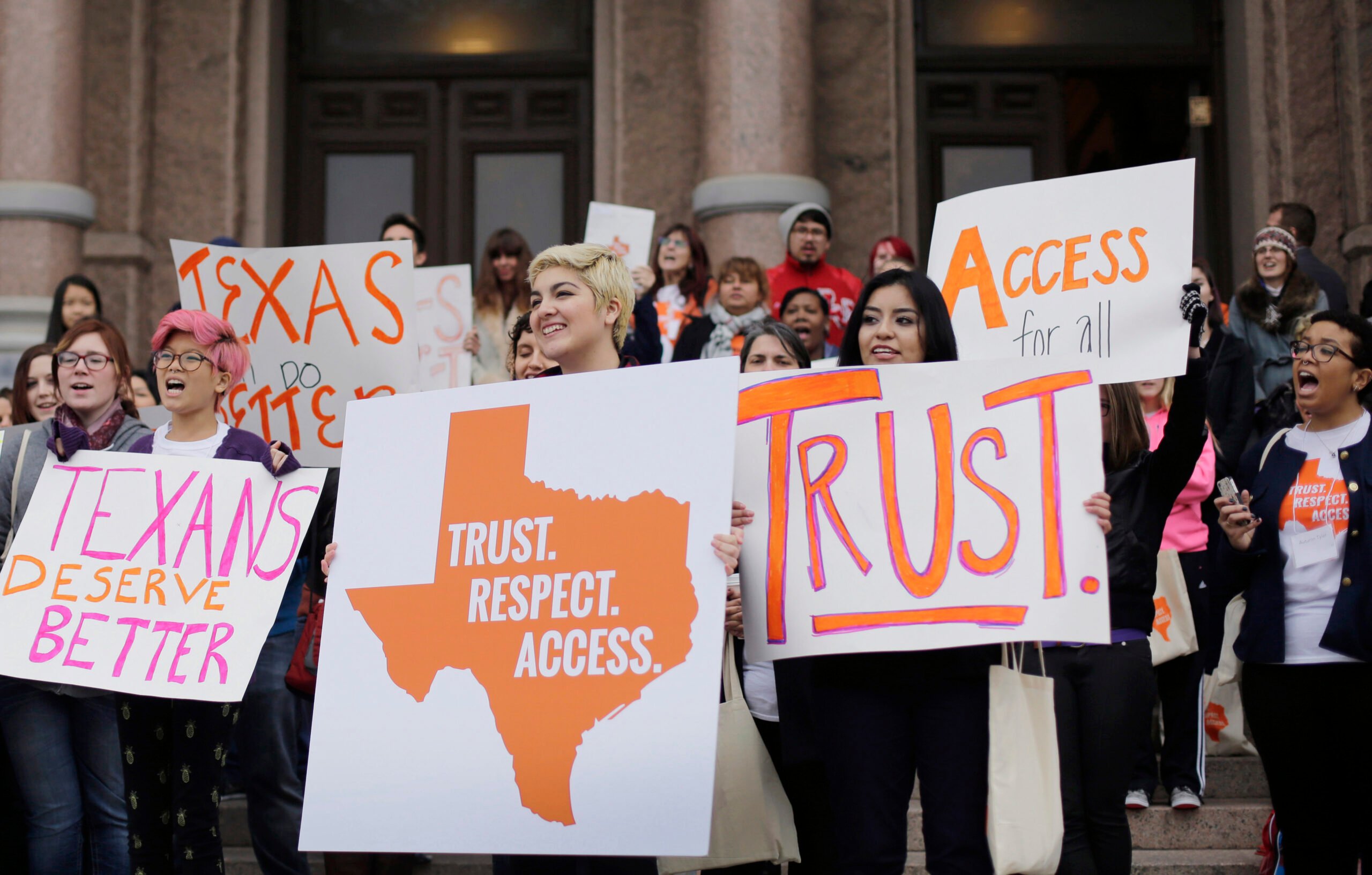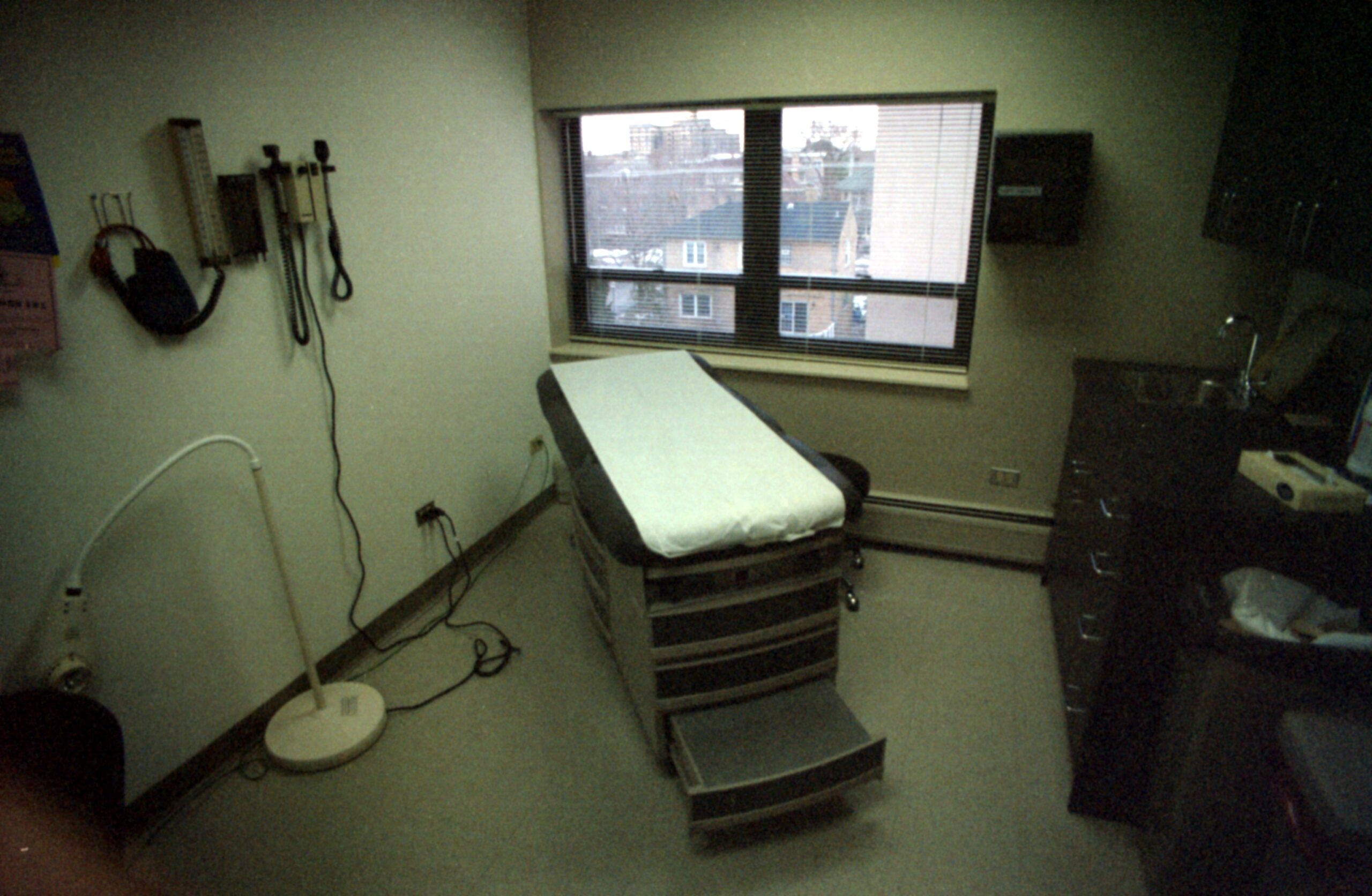Family Planning Cuts Would Deny Services to 284,000, Cost State Millions
House budget cuts could cost $100 million in Medicaid births, LBB says

The cuts to family planning programs approved in the Texas House budget—part of conservative lawmakers’ efforts to defund Planned Parenthood this session—would lead to more than a quarter million low-income women losing essential reproductive health services and birth control, according to a recent analysis.
And, in an odd twist, denying access to birth control for hundreds of thousands of women could end up costing the state tens of millions of dollars.
The House version of the budget would divert about $62 million—two-thirds of total funding—from birth control and other women’s health services to programs like autism services, early childhood intervention and crisis pregnancy centers.
A recent analysis by the Legislative Budget Board estimates the family planning cuts contained in the House budget would result in almost 284,000 fewer women receiving services. With a lack of birth control come more unplanned pregnancies, and possibly more abortions.
The LBB analysis—which hasn’t been made public, but was obtained by the Observer—also estimates that the state’s Medicaid program would have to cover approximately 20,511 more births. That would cost almost $100 million in state dollars over the next biennium and a total of $231,117,948 in state and federal funds. Each child born to a woman eligible for Medicaid—the exact population served by the state’s family planning programs—costs an average of $11,000 in state and federal dollars for delivery and infant care.
The upfront savings from cutting $62 million out of family planning services would be more than offset by the $100 million in additional Medicaid births. So if the family planning cuts in the House budget go into effect, the state would lose approximately $38 million.
The Senate version of the budget passed last week is much more generous. The Senate would maintain the original $99.6 million in funding for family planning. The two chambers will soon start negotiating behind closed doors on how much they’ll spend in the final budget. Last week, Rep. Sid Miller, R-Stephenville, “instructed” his House colleagues on the budget conference committee to keep the nearly $62 million in family planning cuts in the final budget. He argued that state family planning dollars shouldn’t go to affiliates of abortion providers. (These so-called “instructions,” however, are non-binding.)
The family planning cuts also would reduce the number of providers available to women seeking basic reproductive healthcare and birth control. Planned Parenthood isn’t the only entity that gets state family planning dollars. Exactly 63 non-Planned Parenthood organizations (most of which have several clinics statewide) rely on this funding to provide essential reproductive health services to poor Texas women.
By trying to defund Planned Parenthood, conservative legislators may end up closing many other family planning centers—a throw-the-baby-out-with-the-bath-water situation.
Carole Belver, the executive director of Community Action of Hays, Caldwell and Blanco Counties in Central Texas, said that if the House’s family planning cuts are kept in the final budget, she will most certainly have to close one of her four clinics. Last year, Belver said her clinics spent about $819,000 in state family planning program funds on reproductive services for almost 4,000 women. Some of her clients drive more than 100 miles round trip to get services, and without a clinic in any of these rural counties, Belver said some women may not get treated at all.
Conservative legislators are “trying to get at Planned Parenthood, but they’re going to flush us down the toilet,” she said. “I worry a lot about the low income woman who doesn’t have transportation and doesn’t have the funds to access care in a bigger metro area.”
The future of family planning funding in Texas is now in the hands of 10 budget conference committee members—five from the House and five from the Senate.
One member, Rep. John Zerwas, R-Simonton, said he wants to restore some family planning funding, but, to appease his staunchly conservative and anti-Planned Parenthood colleagues, find a way to keep that money from going to Planned Parenthood family planning health centers.
“We have a need to provide funding for some of these women’s health services that are not going to be met if we don’t do this, and I’m very much about the business of limiting those funds such that they don’t go to (facilities) that provide abortions,” Zerwas said Monday. “I anticipate getting to a place where we can restore some funding but with those provisions in place that will give this House comfort that these monies aren’t going to be utilized in affiliation with abortions.”


